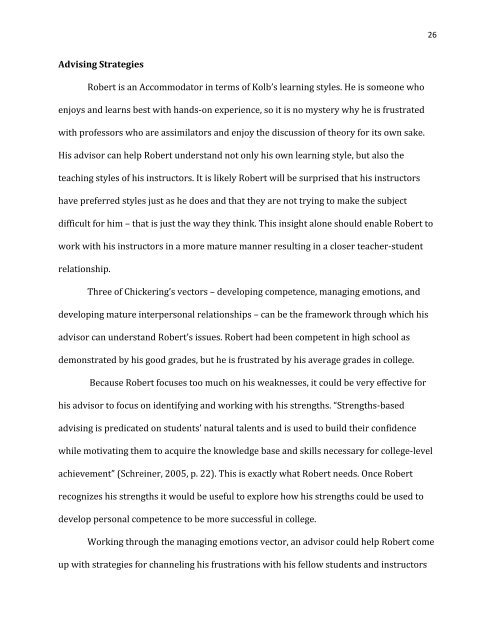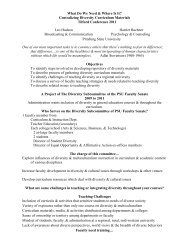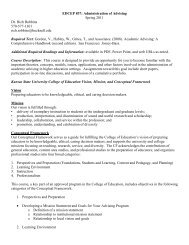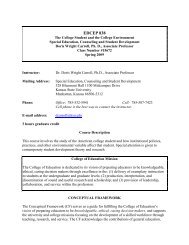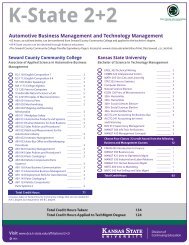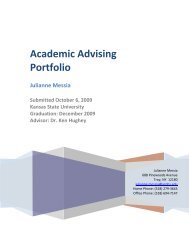David Freitag – KSU Capstone Project - K-State Division of ...
David Freitag – KSU Capstone Project - K-State Division of ...
David Freitag – KSU Capstone Project - K-State Division of ...
You also want an ePaper? Increase the reach of your titles
YUMPU automatically turns print PDFs into web optimized ePapers that Google loves.
Advising Strategies<br />
Robert is an Accommodator in terms <strong>of</strong> Kolb’s learning styles. He is someone who<br />
enjoys and learns best with hands-‐on experience, so it is no mystery why he is frustrated<br />
with pr<strong>of</strong>essors who are assimilators and enjoy the discussion <strong>of</strong> theory for its own sake.<br />
His advisor can help Robert understand not only his own learning style, but also the<br />
teaching styles <strong>of</strong> his instructors. It is likely Robert will be surprised that his instructors<br />
have preferred styles just as he does and that they are not trying to make the subject<br />
difficult for him <strong>–</strong> that is just the way they think. This insight alone should enable Robert to<br />
work with his instructors in a more mature manner resulting in a closer teacher-‐student<br />
relationship.<br />
Three <strong>of</strong> Chickering’s vectors <strong>–</strong> developing competence, managing emotions, and<br />
developing mature interpersonal relationships <strong>–</strong> can be the framework through which his<br />
advisor can understand Robert’s issues. Robert had been competent in high school as<br />
demonstrated by his good grades, but he is frustrated by his average grades in college.<br />
Because Robert focuses too much on his weaknesses, it could be very effective for<br />
his advisor to focus on identifying and working with his strengths. “Strengths-‐based<br />
advising is predicated on students’ natural talents and is used to build their confidence<br />
while motivating them to acquire the knowledge base and skills necessary for college-‐level<br />
achievement” (Schreiner, 2005, p. 22). This is exactly what Robert needs. Once Robert<br />
recognizes his strengths it would be useful to explore how his strengths could be used to<br />
develop personal competence to be more successful in college.<br />
Working through the managing emotions vector, an advisor could help Robert come<br />
up with strategies for channeling his frustrations with his fellow students and instructors<br />
26


